The US has entered the rate hike cycle. In March, the Federal Reserve raised the US interest rate to 1.5 to 1.75%. Certain analysts reckoned that the Fed is likely to increase the interest rate three to four times during the year. However, the pace of the US rate hike is affected by a long list of external factors, and there are many variables around it.
Andy Kwan: Mild impact expected from the US rate increase in the short run
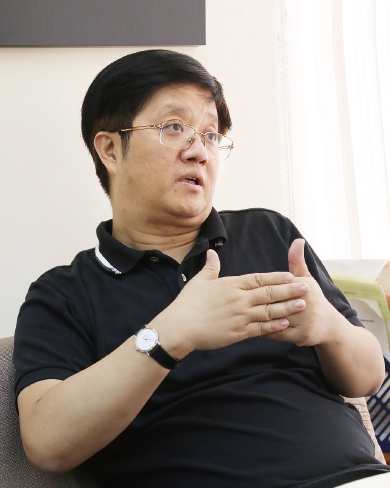
The general market expectation is that the US would increase the interest rate three times this year. Although the US has already raised the interest rate to 1.5% to 1.75% in March, Hong Kong is yet to follow suit. Currently, the interest spread between HKD and the USD is maintained at slightly under 1%. As a matter of fact, HKD had touched the weak-side Convertibility Undertaking on several occasions recently, and HKMA stepped into the market several times to buy HKD.
According to Andy Kwan, Director of ACE Centre for Business and Economic Research, inflation in the US matches market expectations. The interest rate is expected to go up once more in June, and another raise will happen in the second half of the year. In other words, there will be three raises this year. Kwan explained that the deposit rate of USD is currently higher than that of HKD, which will trigger investors to engage in interest rate arbitrage activities to gain from the interest rate spread.
Hong Kong is expected to follow with rate increase
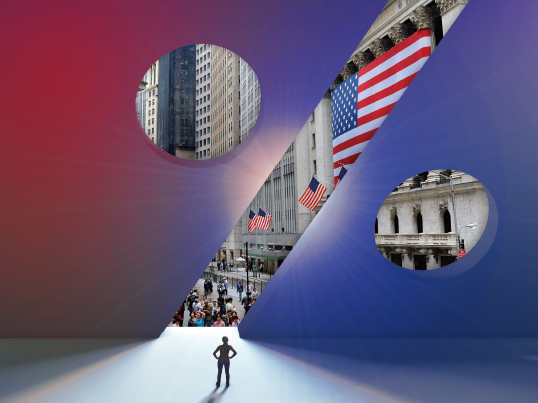 Kwan said that while there is capital outflow in Hong Kong, the situation is not too bad. The Hong Kong currency will continue to be weak. Hong Kong is yet to follow the pace of the US rate hike and the interest rate spread now stands at about 1%. He reckoned that if the US increases the interest rate in June, then it is inevitable that HKD would follow the footsteps of the US “If inflation in the US is not too serious, I think Hong Kong will increase its interest rate as early as in the third quarter. The increment is expected to be 0.25%. If the US increases the rate again in Q4, then Hong Kong is expected to follow as well.”
Kwan said that while there is capital outflow in Hong Kong, the situation is not too bad. The Hong Kong currency will continue to be weak. Hong Kong is yet to follow the pace of the US rate hike and the interest rate spread now stands at about 1%. He reckoned that if the US increases the interest rate in June, then it is inevitable that HKD would follow the footsteps of the US “If inflation in the US is not too serious, I think Hong Kong will increase its interest rate as early as in the third quarter. The increment is expected to be 0.25%. If the US increases the rate again in Q4, then Hong Kong is expected to follow as well.”
Lately, most banks in Hong Kong have already raised the deposit interest rate. It seems that the market is entering the rate hike cycle. Kwan said, “Under the pegged rate, interest rate arbitrage activities would narrow the interest rate spread between USD and HKD. When capital continues to flow out, the interest rate for HKD would be pushed to level with the interest rate of USD, and the exchange rate for HKD would go up accordingly. There won’t be too big a difference between an HKD deposit and a USD one.”
Investors feel pressured
Thanks to the low interest rate environment in recent years, investors are able to invest with low-cost borrowing. But Kwan did not consider the situation as “hot money” directly flowing into the Hong Kong market. He added that in about $1 trillion of “hot money”, more than $800 billion has been locked in with short term exchange fund bills. There is only about $180 million real “hot money”. He also reminded investors that when the $180 billion of “hot money” slowly flows out, the interest rate would also rise. This situation will probably bring psychological pressure on investors.
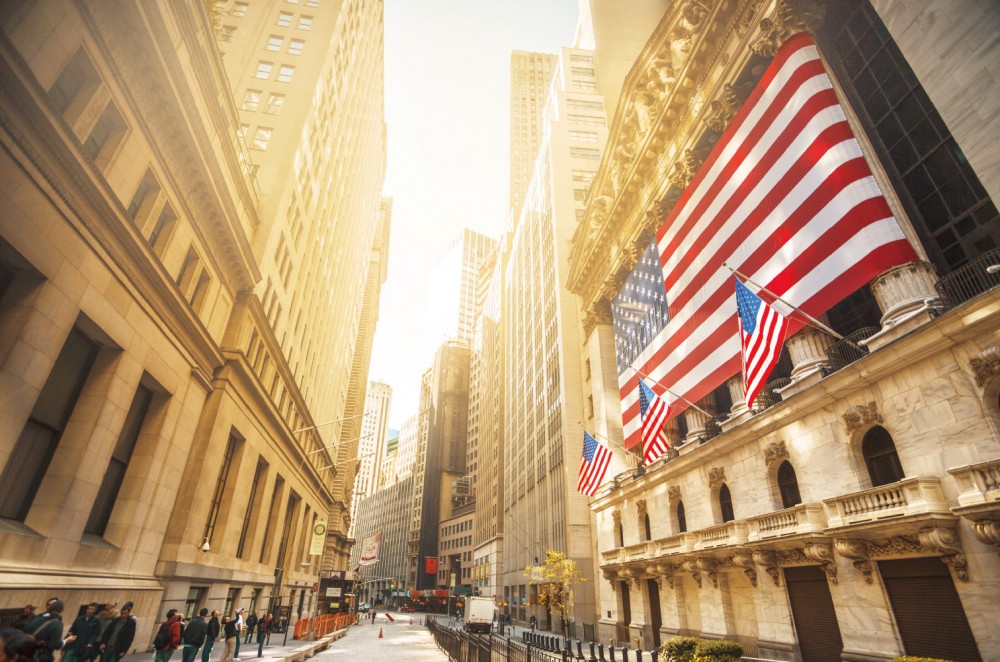 For to-be home owners, rate increase would undoubtedly increase their monthly mortgage repayments. However, Kwan thought that the current pace of rate increase has little impact on to-be home owners and existing home owners. “When the interest rate goes up, the prime rate of banks must follow. The number is expected to be 1% to 1.25%. The cost of new mortgages will increase, and old mortgages would also be affected. However, since existing borrowers have all gone through the pressure test, the increase is expected to have little repercussion on them.” For home buyers with new mortgages, Kwan thought that a long tenure would reduce the relevant impact.
For to-be home owners, rate increase would undoubtedly increase their monthly mortgage repayments. However, Kwan thought that the current pace of rate increase has little impact on to-be home owners and existing home owners. “When the interest rate goes up, the prime rate of banks must follow. The number is expected to be 1% to 1.25%. The cost of new mortgages will increase, and old mortgages would also be affected. However, since existing borrowers have all gone through the pressure test, the increase is expected to have little repercussion on them.” For home buyers with new mortgages, Kwan thought that a long tenure would reduce the relevant impact.
As for its influence on the stock market, Kwan thought that the rate increase of 1.25% would not cause too big of an influence on the stock market. Instead, the stock performance of China and the US and the currency issues of emerging markets would be more influential. Kwan thought that the market has already digested the relevant news. “The influence is not catastrophic when the interest rate increases to 1.25%, because the rate level is still low. Even if it goes up by 1.25%, the rate is still much lower than before”. With the adjustment of HSI earlier on, the impact of the rate increase on the stock market will be quite limited.
Ray of hope in US-China trade war
In mid-May, Vice Premier of the State Council Liu He led a delegation to visit US, bringing a ray of hope for China-US trade conflicts. After the meeting, both sides issued a joint statement, agreeing to gradually reduce the US-China trade deficit, and the Chinese side would increase its import of US goods.
Kwan pointed out that in the course of China-US trade conflict, China has been in an unfavorable situation, paying a much higher price than the US He quoted ZTE Corporation as an example. “When the US had ceased supplying parts and components to ZTE, the company’s operation stalled completely. This reflects that China and the US are still quite a distance apart in terms of technology.” To sum up, Kwan thought that the US-China trade war has limited impact on Hong Kong. He also thought that the asset market could stabilize in the short term. However, he also reminded investors of staying vigilant on the circumstances of the US rate hike.
Tommy Ong: Number of US rate increases faces uncertainties
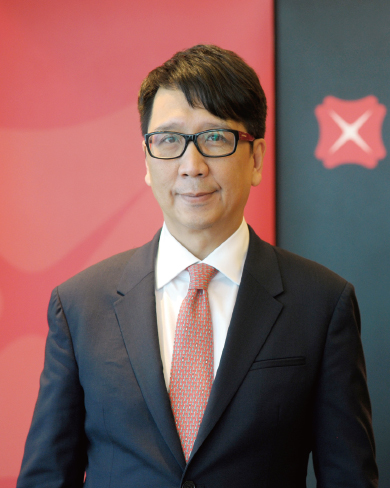
The continued increase of the US interest rate is widening the HKD-USD interest rate spreads and pushing up HIBOR. Regarding the number of US rate increases within the year, Tommy Ong, Managing Director of Treasury & Markets, DBS Bank (Hong Kong) Limited, reckons that three is almost certain, and it is most likely to happen in June and September.
Higher USD exchange rate may drive up interest rate
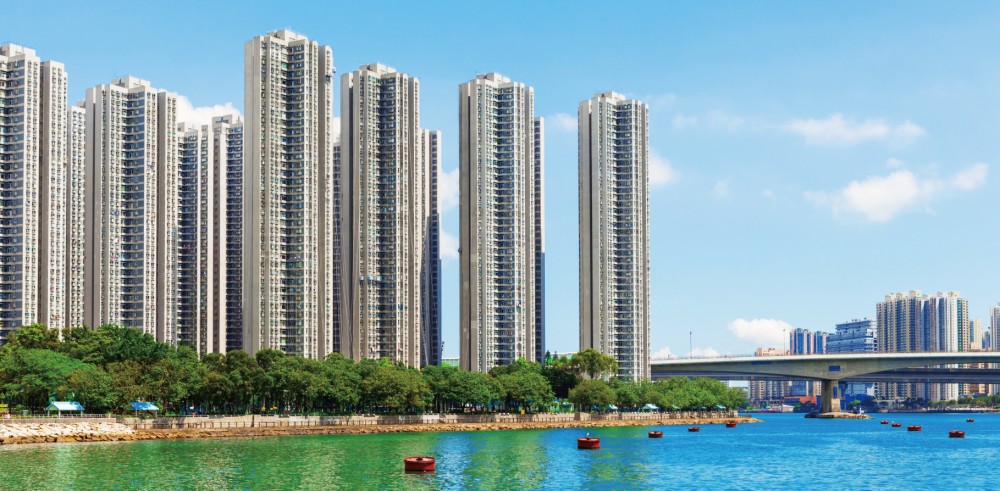 When asked about whether the fourth raise will take place in December, Ong commented that a number of uncertainties still prevail – in particular the midterm elections in November. If the Democrats can secure control of the House of Representatives, the Trump administration would be faced with major challenges. It is still too early to tell whether another rate increase will take place at the end of the year.
When asked about whether the fourth raise will take place in December, Ong commented that a number of uncertainties still prevail – in particular the midterm elections in November. If the Democrats can secure control of the House of Representatives, the Trump administration would be faced with major challenges. It is still too early to tell whether another rate increase will take place at the end of the year.
“Over the past two months, US inflation has expanded faster than before. The Personal Consumption Expenditures (PCE) price index, which has been regarded by the Federal Reserve as an inflation indicator, registered an increase of 1.9% in March, which is very close to the Fed’s inflation indicator of 2%.” Ong added that if the trade conflicts between the US and China as well as other countries cool down, inflation is expected to keep rising.
Similarly, the US Dollar Index has also demonstrated significant growth recently. According to Ong, further rise of the USD means that the Fed is highly likely to raise the interest rate. In fact, the continued strength of the USD is neither positive for the US nor emerging countries. Multinationals in the US would be hit the hardest. The accumulated exchange differences have soared as a result of the stronger dollar. As for emerging markets such as Argentina and Venezuela, the sovereign debt crisis would worsen further.
Rate increase has limited impact on business operation
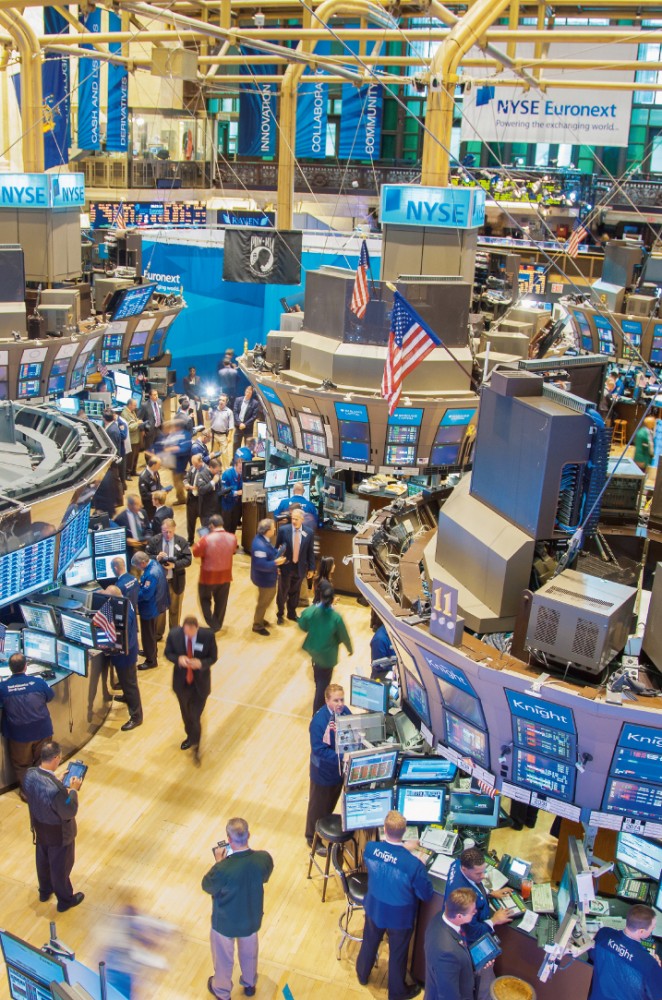 While the US has entered the trajectory of rate increase, the HKD has been staying away from the same path, resulting in widening interest rate spreads between the HKD and the greenback. Ong frankly commented that if the US interest rate rises again in June, the weak-side Convertibility Undertaking will be triggered any time. Further market intervention by the HKMA to buy HKD and sell USD would prove to be ineffective. To prevent further outflow of capital, the inevitable decision to raise the HKD interest rate is expected in the second half of the year.
While the US has entered the trajectory of rate increase, the HKD has been staying away from the same path, resulting in widening interest rate spreads between the HKD and the greenback. Ong frankly commented that if the US interest rate rises again in June, the weak-side Convertibility Undertaking will be triggered any time. Further market intervention by the HKMA to buy HKD and sell USD would prove to be ineffective. To prevent further outflow of capital, the inevitable decision to raise the HKD interest rate is expected in the second half of the year.
Although there are worries that interest rate increase could burden companies in their cost of operation, Ong emphasized there is little relationship between the two. He highlighted that the four pillars of Hong Kong’s economy, namely finance, trade and logistics, tourism, and professional services, have all demonstrated good economic momentum in the first quarter of this year. Even if the interest rate is raised in Hong Kong in the second half of the year and banks are forced to raise the prime rate, it is believed that the overall interest rate level will not be too high. Besides, the steadily stabilizing RMB, which recorded a 3% increment against the HKD amidst the rebound of the USD during the first quarter, has benefited the tourism industry much. In terms of business costs, thanks to the lowered retail rent over the past few years, many companies have locked in a cheaper lease to run their business, benefiting the growth of the retail sector.
Property market will grow in the long run
“Interest rate increase does more good than harm for the banking and financial industries. Trade, logistics and professional services, on the other hand, do not have much to do with rate increase.” Ong believes that small-scale start-ups are perhaps the most affected by interest rate increase in Hong Kong because these companies often need to draw loans to support their early stage of operation. As such, rate increase could definitely add pressure to their repayment.
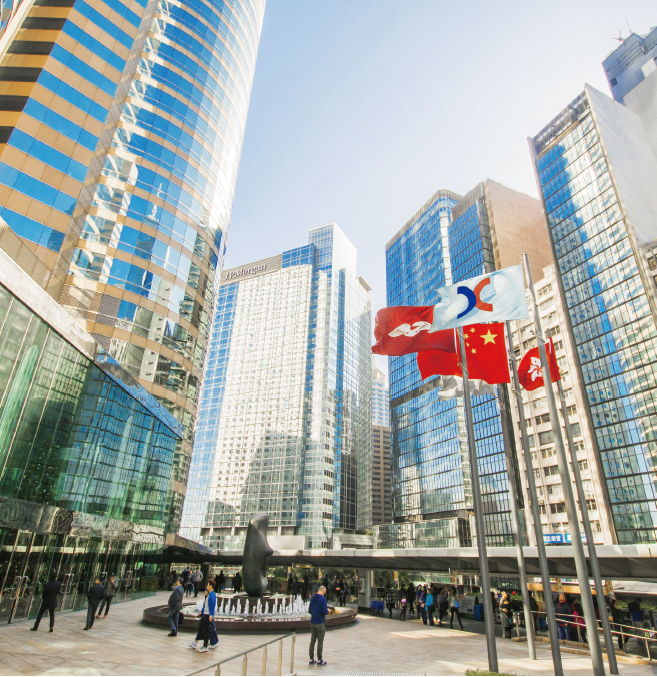 Hong Kong is almost certainly following the US rate increase within the year. For the property market, a topic that Hong Kong people are most concerned about, Ong said that there is not much room for downward adjustment for local property prices. Under the development of the Guangdong-Hong Kong-Macao Bay Area, Hong Kong is expected to transform into the center of the Bay Area, meaning it would be difficult for the property prices to drop. Yet, demand of property investment may be weakened in the early stage of the rate increase cycle if the balance of the banking system shrinks too quickly and HIBOR goes up too slowly - this could bring short-term adjustment to the property market. Yet, Ong expects continual growth in property prices in the long run.
Hong Kong is almost certainly following the US rate increase within the year. For the property market, a topic that Hong Kong people are most concerned about, Ong said that there is not much room for downward adjustment for local property prices. Under the development of the Guangdong-Hong Kong-Macao Bay Area, Hong Kong is expected to transform into the center of the Bay Area, meaning it would be difficult for the property prices to drop. Yet, demand of property investment may be weakened in the early stage of the rate increase cycle if the balance of the banking system shrinks too quickly and HIBOR goes up too slowly - this could bring short-term adjustment to the property market. Yet, Ong expects continual growth in property prices in the long run.




